Related Research Articles
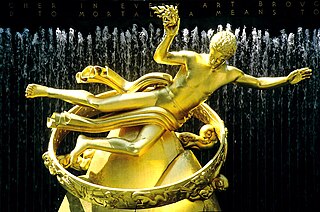
Transhumanism is a philosophical and intellectual movement that advocates the enhancement of the human condition by developing and making widely available new and future technologies that can greatly enhance longevity, cognition, and well-being.
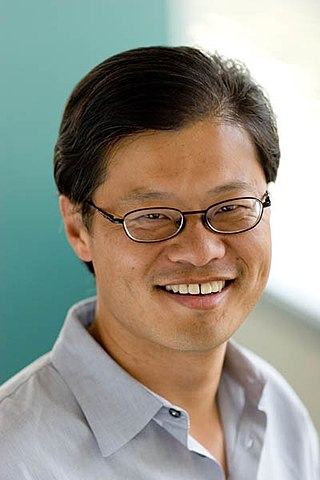
Jerry Chih-Yuan Yang is a Taiwanese-born American billionaire computer programmer, internet entrepreneur, and venture capitalist. He is the co-founder and former CEO of Yahoo! Inc. and founding partner of AME Cloud Ventures. As of December 2024, Yang has a net worth of $2.6 billion.
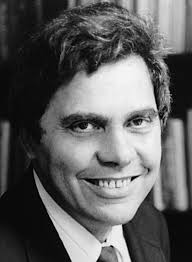
Neil Postman was an American author, educator, media theorist and cultural critic, who eschewed digital technology, including personal computers, mobile devices, and cruise control in cars, and was critical of uses of technology, such as personal computers in school. He is best known for twenty books regarding technology and education, including Teaching as a Subversive Activity (1970), The Disappearance of Childhood (1982), Amusing Ourselves to Death (1985), Conscientious Objections (1988), Technopoly: The Surrender of Culture to Technology (1992) and The End of Education: Redefining the Value of School (1995).
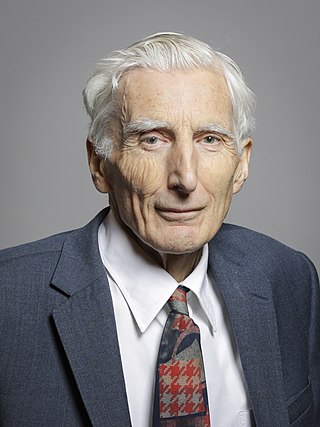
Martin John Rees, Baron Rees of Ludlow, is a British cosmologist and astrophysicist. He is the fifteenth Astronomer Royal, appointed in 1995, and was Master of Trinity College, Cambridge, from 2004 to 2012 and President of the Royal Society between 2005 and 2010. He has received various physics awards including the Wolf Prize in Physics in 2024 for fundamental contributions to high-energy astrophysics, galaxies and structure formation, and cosmology.

John Mark Deutch is an American civil servant and physical chemist. He was the United States Deputy Secretary of Defense from 1994 to 1995 and Director of Central Intelligence (DCI) from May 10, 1995, until December 15, 1996. He is an emeritus Institute Professor at the Massachusetts Institute of Technology (MIT) and serves on the boards of directors of Citigroup, Cummins, Raytheon, and Schlumberger. Deutch is also a member of the Trilateral Commission.

Farai Chideya is an American novelist, multimedia journalist, and radio host. She produced and hosted Pop and Politics with Farai Chideya, a series of radio specials on politics for 15 years. She is the creator and host of the podcast Our Body Politic, which launched in September 2020.
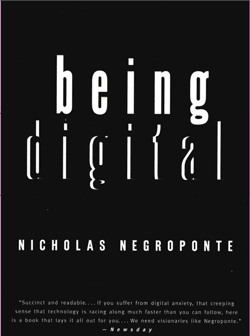
Being Digital is a non-fiction book about digital technologies and their possible future by technology author, Nicholas Negroponte. It was originally published in January 1995 by Alfred A. Knopf.

Future US, Inc. is an American media corporation specializing in targeted magazines and websites in the video games, music, and technology markets. Headquartered in New York City, the corporation has offices in: Alexandria, Virginia; Minneapolis, Minnesota; and Washington, D.C. Future US is owned by parent company, Future plc, a specialist media company based in Bath, Somerset, England.
The 2000-watt society concept, introduced in 1998 by the Swiss Federal Institute of Technology in Zurich, aims to reduce the average primary energy use of First World citizens to no more than 2,000 watts by 2050, without compromising their standard of living.
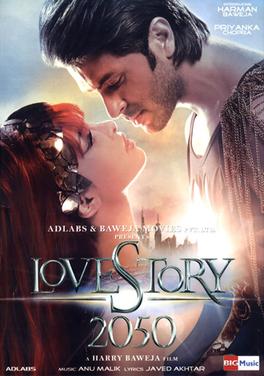
Love Story 2050 is a 2008 Indian Hindi-language science fiction-romance film starring producer Pammi Baweja and director Harry Baweja's son Harman Baweja, and Priyanka Chopra. It is Bollywood's first utopian time travel film.
Peter Wake Ellyard is a futurist, strategist, speaker and author living in Melbourne, Australia. He is known for his perspectives on, and as a speaker about, global trends and emerging global markets, and for his concepts and tools that enable individuals, organizations, communities and nations to become more effective future shapers.

Theodore John Kaczynski, also known as the Unabomber, was an American mathematician and domestic terrorist. He was a mathematics prodigy, but abandoned his academic career in 1969 to pursue a reclusive primitive lifestyle.
Odyssey 2050 is a multimedia film project created by Canadian teacher and musician Bruce Callow. The film incorporates digital animation, documentary, and live action sequences. The aim of the film is to motivate young people from around the world to take constructive action against climate change. Odyssey 2050 is also a registered non-governmental organization. The film was produced in Costa Rica by Daniel and Miguel Bermejo of the Synchro Film company. Bruce Callow, formerly of the UK Embassy, the Earth Charter Initiative, and the British Council were also producers.

The Next Hundred Million: America in 2050 is a non-fiction book by American economist and demographer Joel Kotkin. The author outlines a world in which the growing US population reaches four hundred million by 2050. He argues that the US will become more diverse and more competitive, and he predicts that the US will experience continual economic growth that advances the population's standard of living. Kotkin writes that the US "should emerge by mid-century as the most affluent, culturally rich and successful nation in human history".

Vox is an American news and opinion website owned by Vox Media. The website was founded in April 2014 by Ezra Klein, Matt Yglesias, and Melissa Bell, and is noted for its concept of explanatory journalism. Vox's media presence also includes a YouTube channel, several podcasts, and a show presented on Netflix. Vox has been described as left-leaning and progressive.
Jerome C. Glenn is a futurist who serves as the executive director of the Millennium Project. He has been the executive director of the American Council for the United Nations University (1988–2007) and the deputy director of Partnership for Productivity International.

Death Race 2050 is a 2017 American satirical science fiction action direct-to-video film directed by G.J. Echternkamp, and starring Manu Bennett, Marci Miller and Malcolm McDowell. It is a sequel to the 1975 film Death Race 2000. Both films were produced by Roger Corman, who described the film as "a car-racing picture with some black humor."
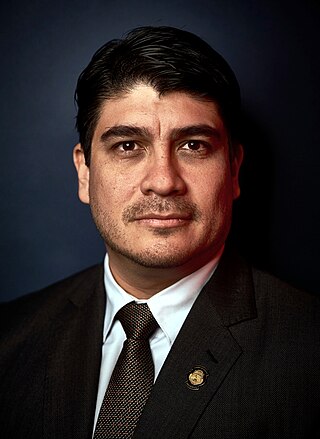
Carlos Andrés Alvarado Quesada is a Costa Rican politician, writer, journalist, and political scientist who served as the 48th president of Costa Rica from 8 May 2018 to 8 May 2022. A member of the Citizens' Action Party (PAC), Alvarado previously served as Minister of Labor and Social Security during the presidency of Luis Guillermo Solís.

The Adam Project is a 2022 American science-fiction action comedy film directed by Shawn Levy and written by Jonathan Tropper, T. S. Nowlin, Jennifer Flackett, and Mark Levin. The movie stars Ryan Reynolds, Walker Scobell in his film debut, Mark Ruffalo, Jennifer Garner, Catherine Keener and Zoe Saldaña. In the film, fighter pilot Adam Reed (Reynolds) crash lands in 2022 after getting injured while stealing a time jet, and meets his 12-year-old self (Scobell) in the process, who had been dealing with the loss of his father Louis (Ruffalo) the year before. All the while, Maya Sorian (Keener), leader of the dystopian world and head of her company Sorian, plans to monopolize time travel.

Michał Andrzej Kobosko is a Polish journalist and politician. He is the deputy chairman of the Poland 2050 party by Szymon Hołownia.
References
- ↑ "Life in 2050".
- ↑ Brown, Alison. (November 8, 2033] "New New York: What the near future will bring" Metro. Accessed October 2, 2012.